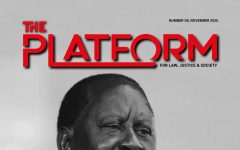The second round of confirmation of charges hearings kicked off this past week at the International Criminal Court in The Hague. From the outset, it is clear that this is going to be a different viewing experience from that of case number one against William Ruto, Henry Kosgey and Joshua Sang.
First, each of the defendants has come to court with a clearly superior legal team, each being led by a senior international lawyer with long experience in international criminal trials.
Mr Muthaura’s lawyer, Mr Karim Khan, is a British barrister of the rank of Queen’s Counsel, the most distinguished rank among lawyers in England. He has acted as defence counsel in various cases before the International Criminal Tribunal for the former Yugoslavia, International Criminal Court at The Hague, and the Special Court for Sierra Leone. He successfully represented Bahar Idriss Abu Garda on charges concerning Darfur where the Pre-Trial Chamber refused to confirm the charges. He is the most experienced of the team in criminal defence at international criminal tribunals.
Mr Steven Kay, Mr Kenyatta’s lawyer, is also a Queen’s Counsel and a founder member of the International Criminal Law Bureau. He also has a wide experience in high profile international criminal cases and defended former Yugoslav President Slobodan Milosevic at the ICC on charges of mass executions.
Was indicted
Maj-Gen Ali’s lawyer, Gregory Kehoe, acted as adviser to the Iraqi Special Tribunal formed to prosecute Saddam Hussein and members of his former regime. Mr Kehoe currently represents Croatian Gen Ante Gotovina, who was indicted by the International Criminal Tribunal.
Possibly in realisation of the strength of the defence team, Mr Louis Moreno-Ocampo has himself assembled his dream team. With him was the deputy prosecutor Adesola Adeboyejo who impressed many for her combativeness and clarity of presentation.
Mr Moreno-Ocampo appears to have put his best foot forward on this case. The presentation of evidence was well rehearsed with the members of the team talking in slow tempered tones. Events have been well tied together to make one clear narrative which the prosecution gave to court in a properly choreographed narration.
In the case of Mr Ruto and the others, the prosecution seemed to have problems putting forward a clear picture of the allegations against the suspects. They have not had a similar problem in the current case.
One of the things working for the prosecution in this matter is that the allegations are based on official actions and institutions. There are records of activities, minutes of meetings and official command structures which the prosecution has used to weave their case.
In the Ruto case, the allegations surrounded unofficial activities by ad hoc association of persons operating in unpredictable manner. While in the Uhuru case the prosecution is using a renowned criminal organisation as the basis of the execution of the violence, in Ruto’s case they had to create an association they called “the network”.
Existence of Mungiki
Mr Moreno-Ocampo had difficulty getting evidence of the existence of this network. This time round, he doesn’t need to prove the existence of Mungiki. He also had to prove that Mr Ruto was the head and had effective control over the leadership of “the network”. In this case he doesn’t need to prove that Mr Muthaura was the Head of the Public Service and Maj-Gen Ali was the head of the police. Aspects such as these in this prosecution make Mr Moreno- Ocampo’s work easier than it was last time.
Another example is that while last time there were arguments about the cause of the violence with the defence insisting that it was a spontaneous reaction to the alleged rigging of presidential elections, there is no issue in this case as to the reason for the attacks in Naivasha and Nakuru.
In a large way, the only challenge Mr Moreno-Ocampo has in this case is to tie the suspects to the crime. Almost all the surrounding issues are not in dispute. Indeed, the involvement of Mungiki is disclosed by government security minutes.
What I therefore find curious is why Mr Moreno-Ocampo has put his best foot forward in the case where his challenges are less. If there is a case where the prosecution needed to put Ms Adesola Adeboyejo to lead the prosecution it was the Ruto case.
I think it is a statement of what he thinks of the legal teams and the resources at the disposal of each.




